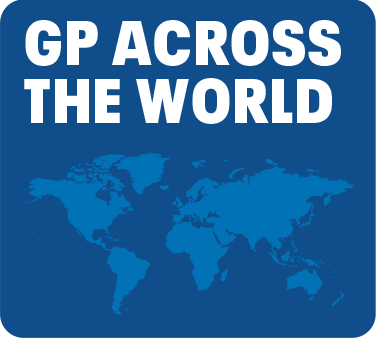Consultation length is an area where the UK is lagging behind, says Jaimie Kaffash

The 10-minute appointment is part of the UK general practice furniture. However, it isn’t actually a contractual requirement – it is custom. Compare this with Australia, where 15-minute appointments are built into practices’ contracts.
It is BMA policy to move towards 15-minute appointments – one that has been reaffirmed by a number of LMC conferences. And it is well overdue as consultation length is yet another area where the UK lags behind.
Professor Greg Irving, a practising GP and director of the Health Research Institute at Edge Hill University, led a study on consultation times in 2017 that found the UK was ahead of only Austria and Germany among high-income countries. He is currently updating the study and has found both those countries are now surpassing the UK. Only Spain, where consultation lengths have decreased in that time, is now behind the UK. The Scandinavian countries that topped the list in 2017 have actually extended their average times since then, he adds.
Professor Irving says the 2017 study caught the attention of number of countries as it ‘is a currency that patients often talk about’. Historically, there have been QOF incentives designed to increase consultation lengths, including in the 2005/06 patient experience domain. This was at a time when many practices were offering five-minute consultations.
Dr Mary McCarthy, a former GP in Shropshire and former vice president at the European Union of General Practitioners (UEMO), says UK consultations times are a topic of discussion in Europe. GPs in the Netherlands are able to give appointments of 20 minutes or more, she says. ‘If you talk to any Dutch GP, they’re surprised that you could see a patient in 10 minutes.’
Former BMA Council chair Dr Chaand Nagpaul points towards a recent BMA survey, which found that in the UK – and especially England – there is a lot more to cram in those 10 minutes. He says: ‘In those 10 minutes, we need to record our activity for QOF, and enhanced services. My sense is that UK general practice is subject to far more KPIs and recording data for the purposes of measurement during a consultation.’
Professor Irving tells Pulse patient care isn’t even the primary reason for extended appointment lengths. He says: ‘Interestingly, patient satisfaction hasn’t always followed longer consultations. What a number of studies have shown is that many of the benefits of longer consultation have been on the doctors’ side – such as less burnout. They don’t lead to more investigation either.’
In an interview with New Zealand Doctor Rata Aotearoa earlier this year, Professor Tony Dowell of the University of Otago said: ‘Primary care is increasingly complex, increasingly busy, and underfunded for the kind of roles which you’re now being asked to try to undertake.
‘It’s highly likely that all of primary care is under-resourced to appropriately manage the high levels of complexity that we’re seeing.
‘For example, that notion of the standard 15-minute appointment is very 20th century. Many, many of our patients need more time, more resourcing, [if we are] to provide the care that we know we can provide.’
With the New Zealand system one of the closest in structure to UK general practice, UK consultation times start to look prehistoric in comparison. Whether GP leaders and policymakers will have what it takes to drag the country into the 21st century in this respect remains to be seen.
Pulse July survey
Take our July 2025 survey to potentially win £1.000 worth of tokens













All our face to face appointments are 15 mins. Some of our prebooked telephone appointments are also 15mins. We have some shorter results telephone slots.
We don’t have any ‘easy’ appointments however as they are pre triaged.
Another reason the ‘session’ is an anachronism, and should be replaced by measures of hours working, given all the different types of work, working patterns and appointments that take place according to the local judgement of the practice, its contract, its staff mix and population
Some practices still ask locums to do sessions of 8-minute appointments.
I prefer 10 minute appointments to be honest. 15 minute appointments invite patients to tell you all their clinical issues and an extra 5 minutes doesn’t compensate for this. A 10 minute appointment with a well enforced “one problem, one appointment” policy is sufficient. Also 15 minute appointments would add an extra 140 minutes to my patient facing day.
Can’t see what you all find to talk about myself——–I often see twice as many patients in an hour as my colleagues
Just tell me your medical problem and I’ll try to sort it out (that’s what I’m here for).
Tell me about ‘shit life syndrome’ and your transferring your unhappiness to me!
Like Simon, we have offered all routine GP appointments @ 15 minutes for years. I think they are more efficient and therefore don’t end up taking any more time in the long run as you can agree and set plans better. In another difference to our untimed ( but generally shorter ) urgent slots, we promote no limit to the number of problems brought to a routine appointment.
I am not sure of the wisdom of telling the patients that they are ’15-minute appointments’, as this may encourage them to talk for longer, to “get their money’s worth”.
I always try to deal with as much as possible during the consutation, as some separate symptoms may be lnked to same cause, but I draw the line after dealing thoroughly with presenting problem if they start asking for completely unrelated things like having forms filled out (leave at reception – they will tell you the fee), blood tests (book with phlebotomist), or other family members’ problems (various difficulties arise with this!)
It may be best if patients still thought we all did 5-minute appointments, as then there is no pressure to expand the issue to fill a whole 10 or 15 if it really, really, doesn’t.
Anyway, sometimes I need to expand a consultation to well over 30 minutes to sort something, and will need to catch up. And there are so many secondary care-related things these days that just take up too much time – like waiting for the emergency ambulance for the patient with MI for several hours, because the patient is ‘low risk’ because they are with me!